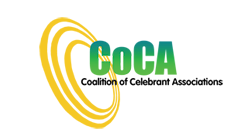Note:
The requirement of the couple to give verbal consent to the marriage in front of witnesses, which is a requirement for the 70% of couples who choose a civil weddings, is not applied to religious couples, if the form of ceremony used by a religious celebrant1 does not include such consent.
It is known that this component is missing in certain religious ceremonies. However without the ability to review the over 650 religious groups' ceremonies covered by section 45, CoCA is not in the position of being able to identify the extent of this exemption.
Given the concern about Child and Forced Marriages in Australia, all marriage celebrants when conducting a marriage according to law should be required to ensure that this Section of the Act is added to the religious ceremony.
This exemption may have been appropriate mid-last century. However consideration needs to be given this section of the Marriage Act needs updating to met the needs of marrying couples in Australia in the twenty-first century so all couples are treated equally in law as regards the basic components of a legal marriage.
Reference:
1. Recognised Religions celebrants and Independent religous celebrants exempted under the Marriage Act 1961.
Marriage Act Section 45 Form of ceremony
(1) Where a marriage is solemnized by or in the presence of an authorized celebrant, being a minister of religion, it may be solemnized according to any form and ceremony recognized as sufficient for the purpose by the religious body or organization of which he or she is a minister.
(2) Where a marriage is solemnized by or in the presence of an authorized celebrant, not being a minister of religion, it is sufficient if each of the parties says to the other, in the presence of the authorized celebrant and the witnesses, the words:
“I call upon the persons here present to witness that I, A.B. (or C.D.), take thee, C.D. (or A.B.), to be my lawful wedded wife (or husband)”;
or words to that effect.
(3) Where a marriage has been solemnized by or in the presence of an authorized celebrant, a certificate of the marriage prepared and signed in accordance with section 50 is conclusive evidence that the marriage was solemnized in accordance with this section.
(4) Nothing in subsection (3) makes a certificate conclusive:
(a) where the fact that the marriage ceremony took place is in issue—as to that fact; or
(b) where the identity of a party to the marriage is in issue—as to the identity of that party.


